With Nine in 10 Voters Worried, US Economy Becomes Make-or-Break Issue in 2024 Presidential Race
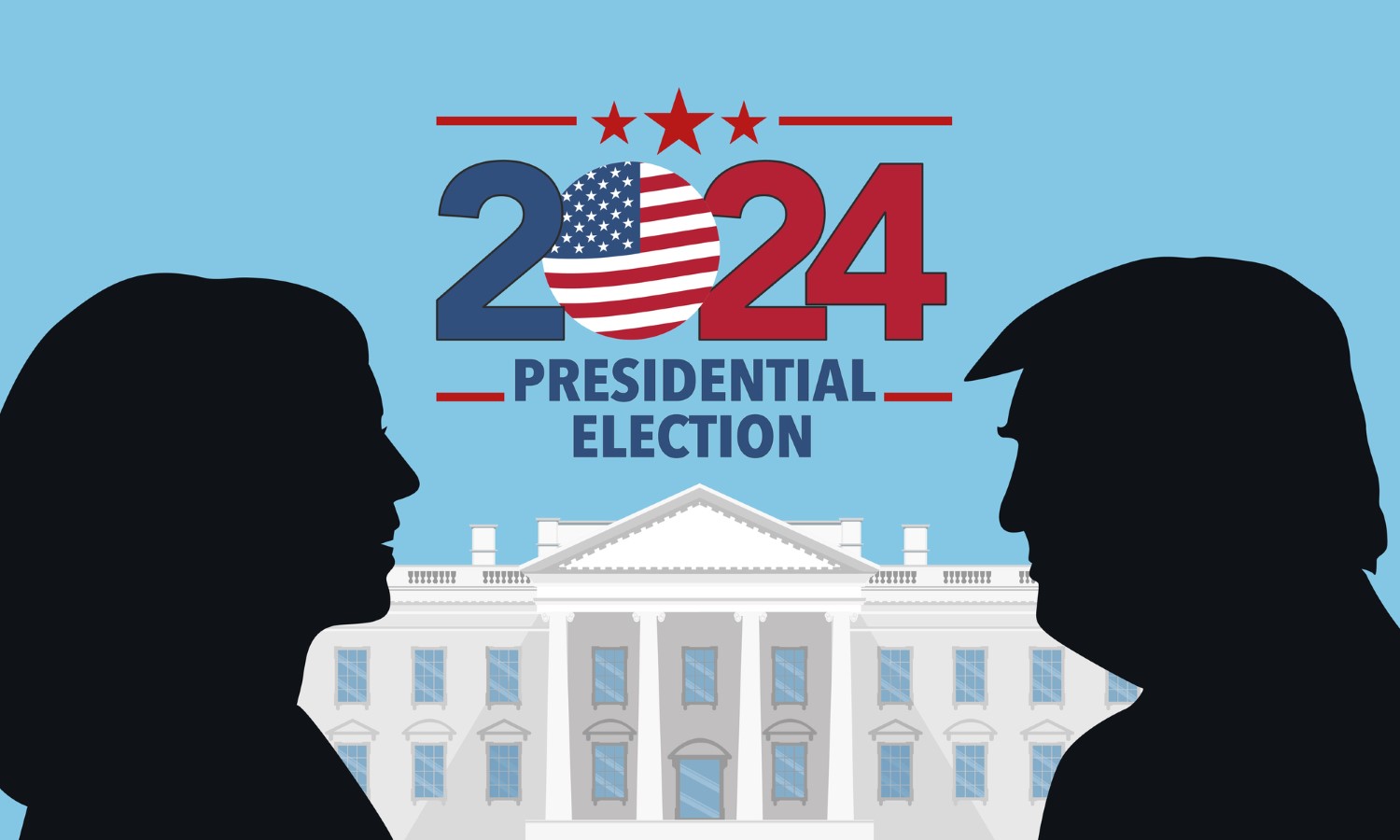
As the 2024 presidential election looms, voters make it clear the economy will be the decisive factor in choosing the United States’ next leader. In a recent Gallup poll, 52% of registered voters said candidates’ stance on the economy is “extremely important” to their vote — the highest concern over economic issues since the Great Recession.
Importance of Economy Highest Since Great Recession
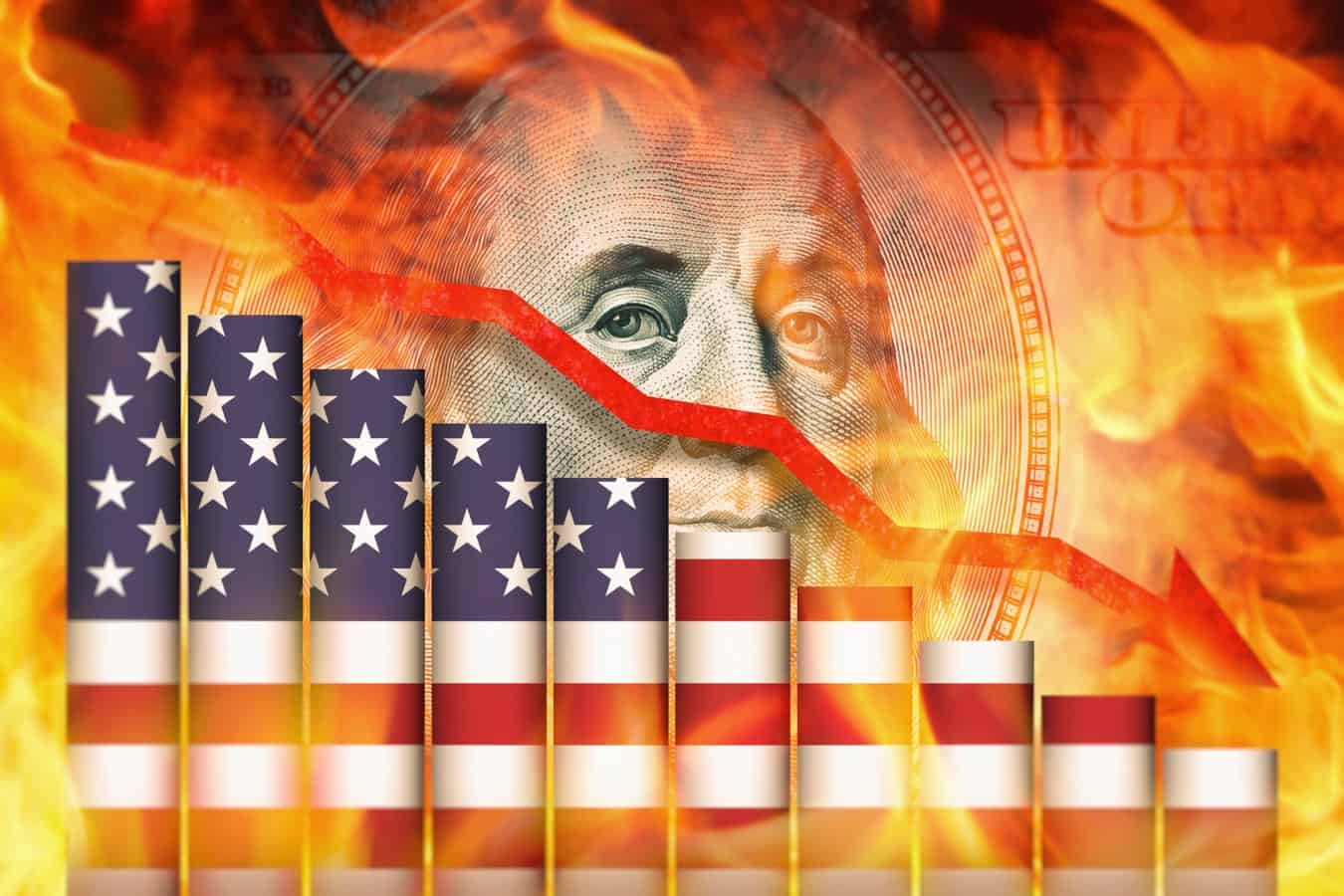
Over half of Americans (52%) say they and their families are worse off now compared to four years ago, while 39% feel they are better off and 8% report their situation remains the same as per the latest Gallup poll released on 18th October, 2024.
Worst Economic Confidence Index Readings in an Election Year

Historically, Americans’ perceptions of being better off have closely mirrored their views on the economy, as captured by Gallup’s Economic Confidence Index (ECI).
Gallup’s most recent poll from Oct. 1-12 puts the ECI at -26, one of the worst readings in an election year, alongside the 39% “better off” figure from September.
Economy and Inflation Climb on U.S. ‘Most Important Problem’ List

More Americans are highlighting economic issues as the top problem facing the country.
Concerns primarily center on the overall economy, which rose to 18% in August from 13% in July, and inflation, which increased to 15% from 13%.
Smaller percentages of Americans are focused on issues like unemployment, financial insecurity, income inequality, the federal budget deficit, or other economic factors.
Overall, 41% of Americans now cite one or more economic concerns, a significant increase from 33% in July and the highest rate this year.
The general economy is now nearly tied with immigration (19%) as the most frequently mentioned specific issue. In contrast, mentions of government as the top problem have decreased significantly, dropping 10 points to 16% in August.
Inflation Has Been a Top Concern
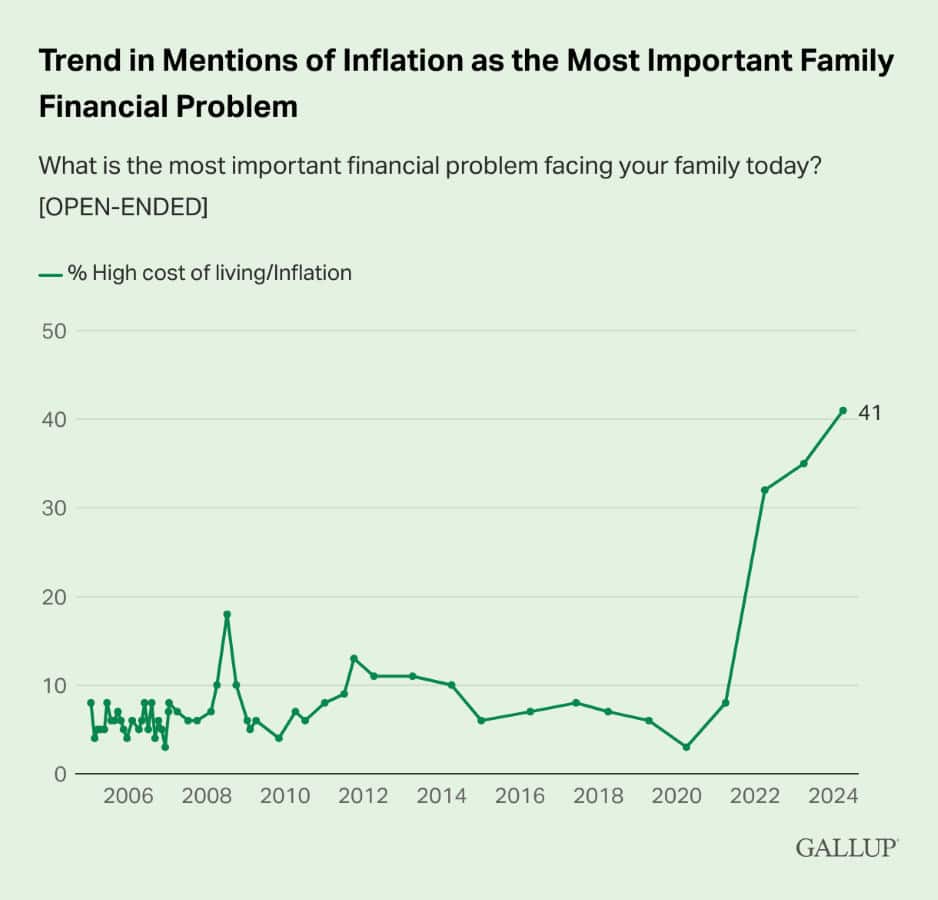
For the third consecutive year, the proportion of Americans identifying inflation or high living costs as their family’s top financial problem has hit a new peak. This year, 41% cite the issue, a slight increase from 35% last year.
The latest findings come from Gallup’s annual Economy and Personal Finance poll, conducted between April 1 and 22, 2024. Since 2005, Gallup has asked Americans annually to name the top financial problem facing their family without prompting.
Inflation has been the leading concern for the past three years.
Other Financial Problems
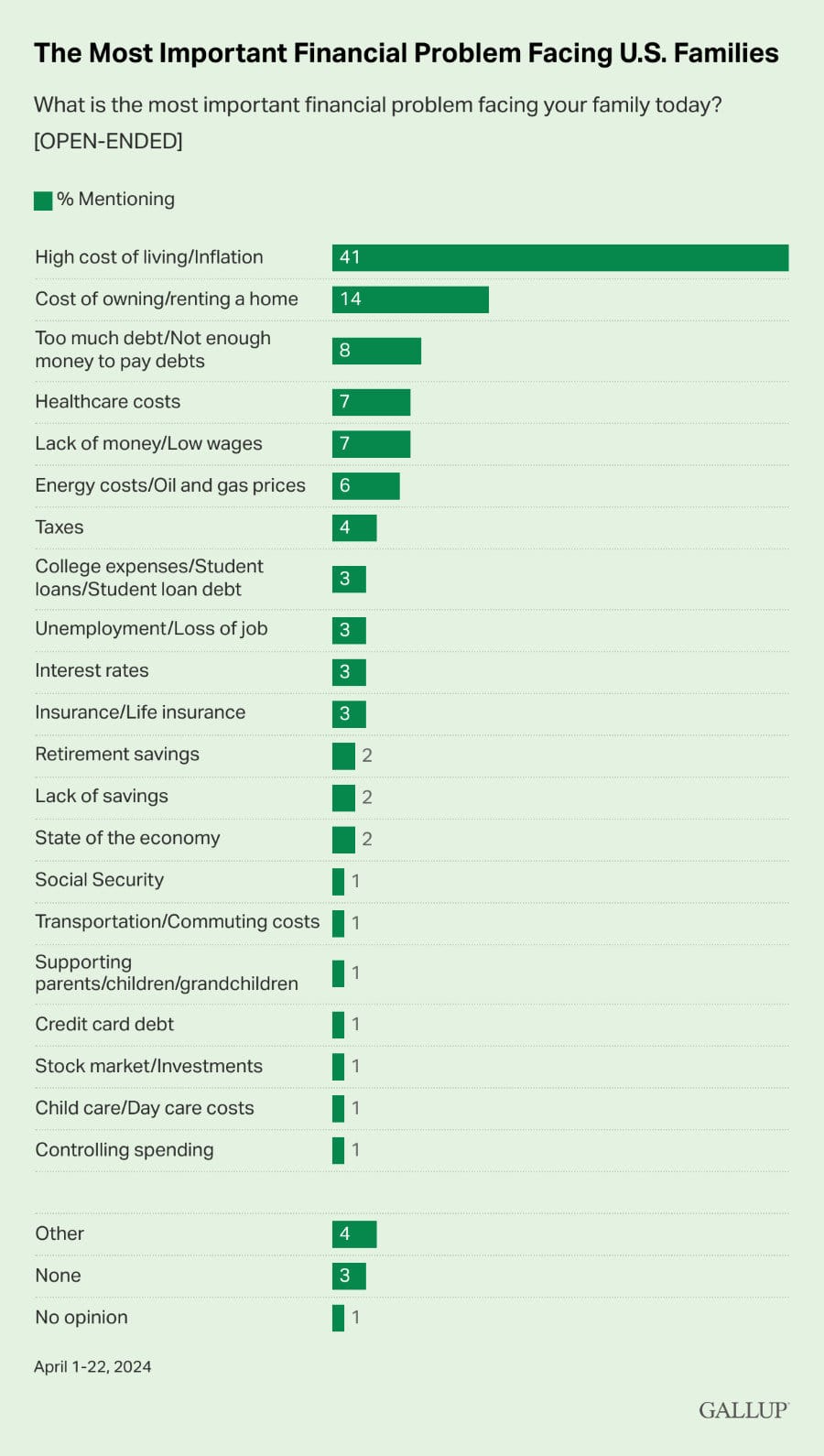
This year, the cost of owning or renting a home follows inflation as the second most pressing issue at 14%, a new high for this category.
Other major concerns Americans mention include excessive debt (8%), healthcare expenses (7%), low wages or lack of funds (7%), and energy costs or gas prices (6%).
The increase in cost of owing and renting homes has crushed average Americans.
Zillow’s recent research report sheds light on the reality facing today’s homebuyers, indicating a significant shift in the financial landscape since 2020. To afford a home in the current market, individuals need to earn $47,000 more than they did just a few years ago, pushing the required annual income to over $106,000.
Redfin’s recent research, which delved into housing and income statistics, mirrors these findings, highlighting the widening gap between home affordability and average earnings. Their analysis reveals that the average household’s income falls short by about $30,000 of what is necessary to purchase a median-priced home in the U.S.
To afford such a home today, a buyer must earn $114,000 annually—35% more than what the typical household earns.
Surging Transportation and Food Costs Crushing Americans
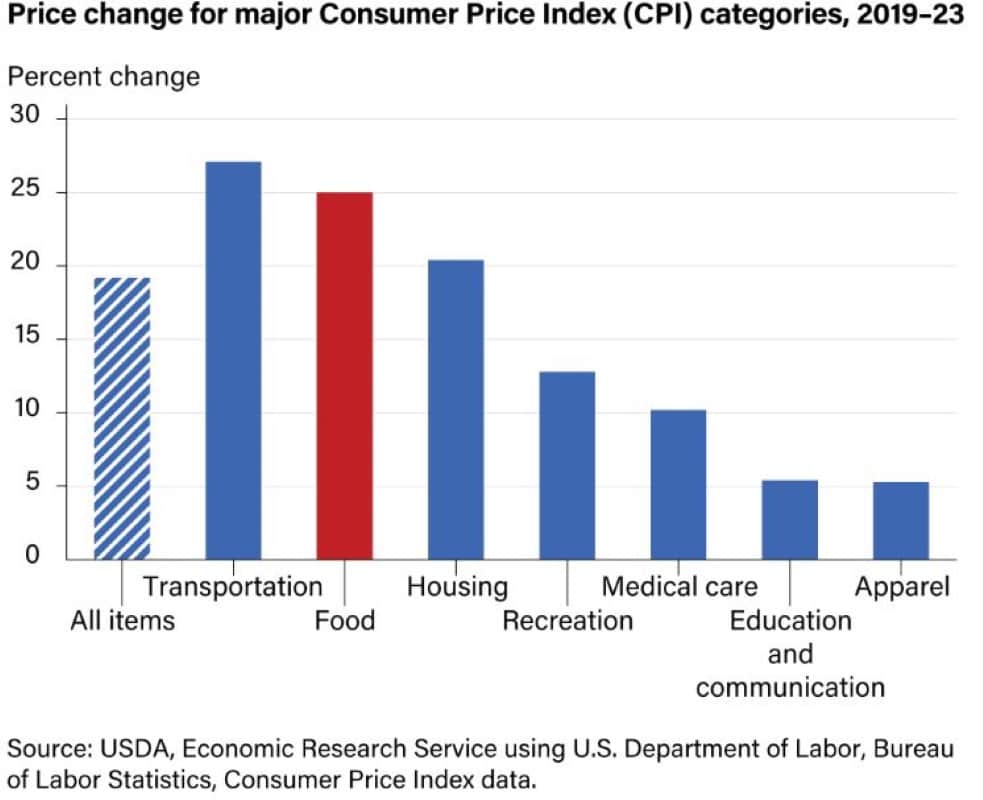
Between 2019 and 2023, the all-food Consumer Price Index (CPI) surged by 25 percent, surpassing the growth rate of the all-items CPI, which stood at 19.2 percent during the same period.
While food prices saw a rise lower than the 27.1 percent increase in transportation costs, they outpaced the upticks in housing, medical care, and all other primary categories.
Demographic Breakdown of Inflation Concerns

Inflation is the top financial concern across all major societal groups, though certain age, income, and political segments express higher levels of concern.
Among older Americans (50+), 46% cite inflation as their primary worry, compared to 36% of younger Americans (under 50).
Middle-income earners (46%) and upper-income earners (41% of those making $100,000 or more annually) are more concerned about inflation than lower-income individuals (31% of those with incomes under $40,000).
The issue is most pressing for Republicans, with 56% naming it their top financial problem, followed by 39% of independents and 26% of Democrats.
Concerns About Maintaining Standard of Living
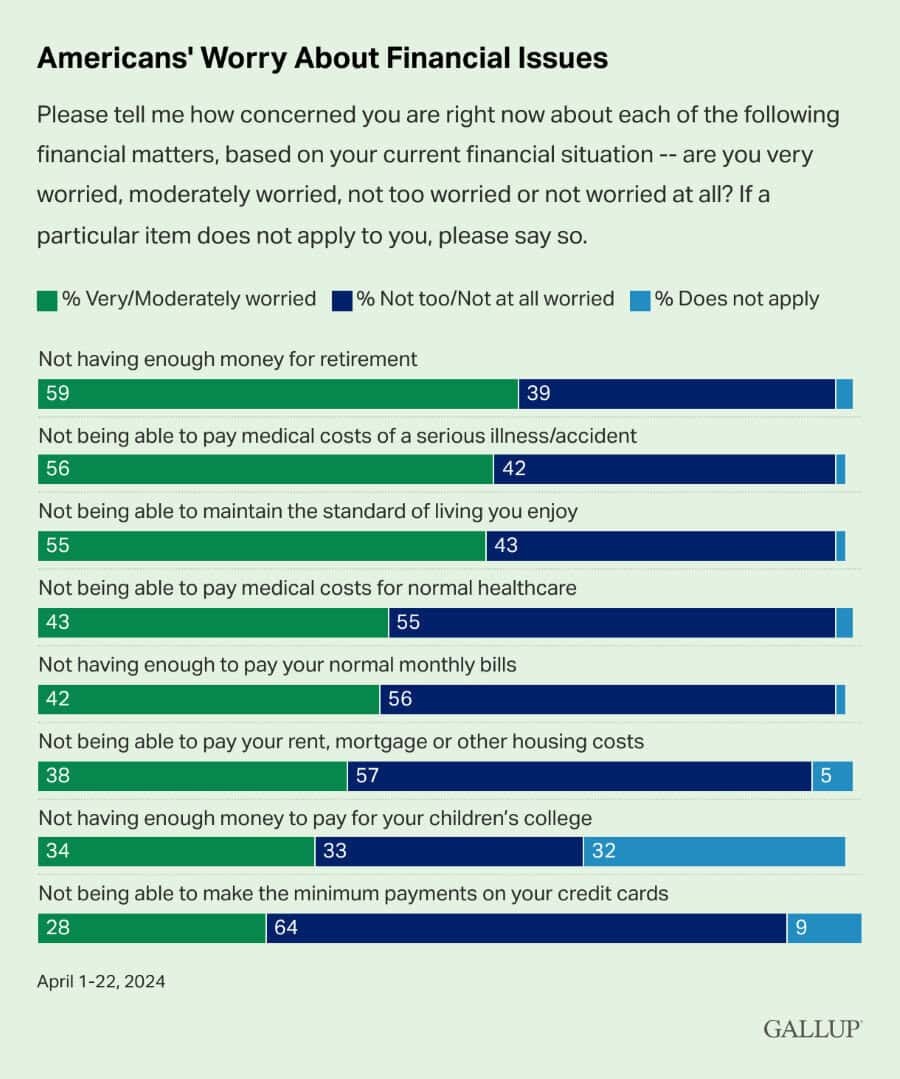
Retirement and medical emergencies are additional sources of concern. A separate survey question asks Americans to rate their level of worry about eight specific personal financial issues, not including inflation.
However, inflation’s impact is seen in the increased percentage of those anxious about maintaining their standard of living.
Fifty-five percent express significant or moderate worry about sustaining their lifestyle, marking the third consecutive year where a majority has held this concern.
Social Security and Medicare Insolvency

Concerns about maintaining one’s standard of living rank among the top three economic worries for Americans, alongside fears of insufficient retirement savings and the inability to cover medical expenses in case of a serious illness or accident.
The Trustees of Social Security and Medicare unveiled their yearly financial forecasts for both programs, looking ahead over the next 75 years. The newly released projections for Social Security paint a grim picture of rapid progression towards insolvency in 10 years, underscoring the urgent need for trust fund remedies to avert widespread benefit reductions or sudden adjustments in taxes or benefits.
Perceptions of Personal Finances Stay Low

Forty-six percent of Americans view their personal finances as excellent or good, consistent with the past two years’ figures but worse than the assessments recorded from 2017 to 2021.
Americans Say Their Finances Are Deteriorating
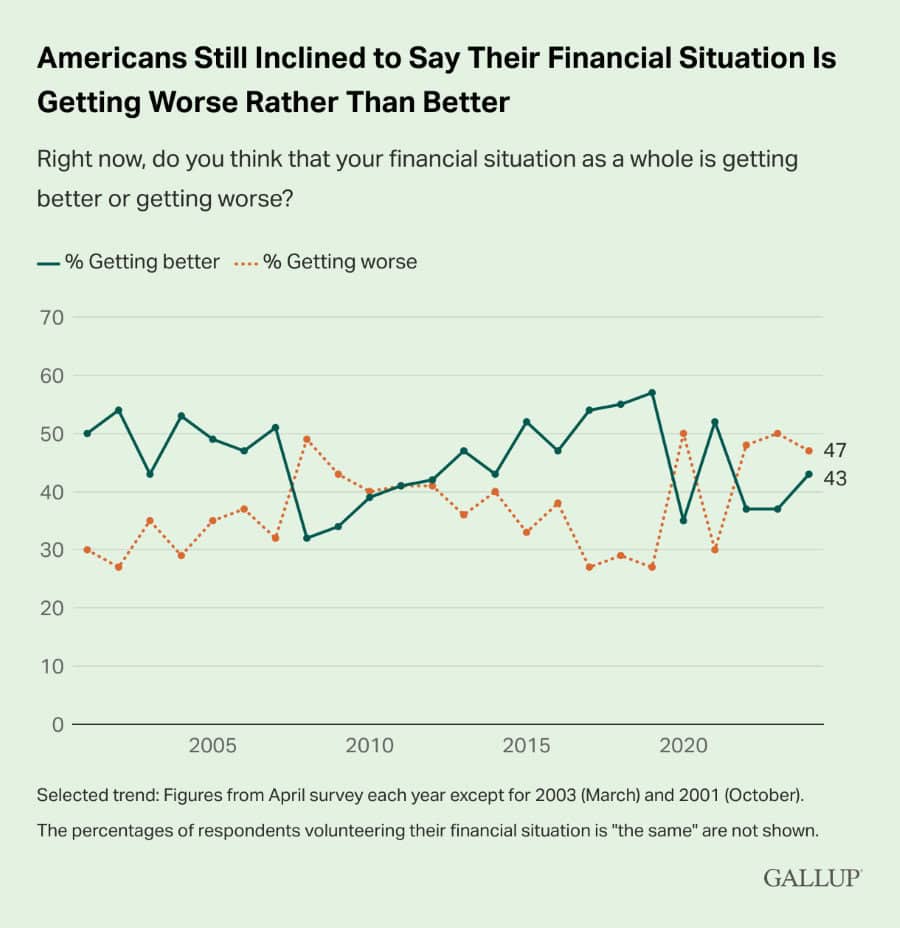
47% now believe their financial situation is worsening, marking a 17-point increase since 2021.
Inflation remains a significant concern for Americans and may explain why fewer than half feel optimistic about their financial situation. It’s not only seen as the most pressing financial problem for families, but it also ranks high among the domestic issues Americans worry about most.
Inflation is only surpassed by concerns over immigration, government, and the economy as a whole when Americans are asked about the nation’s most critical problems.
Although the U.S. inflation rate has decreased notably from its 2022 peak, this improvement hasn’t changed Americans’ views on their finances.
The lingering effect of higher prices over recent years, coupled with inflation staying above the lower rates seen between 2012 and 2020, could be influencing these perceptions. Recent government reports suggest inflation might be on the rise again, which has led the Federal Reserve to postpone expected interest rate cuts this year.
Job Outlook Deteriorates

Gallup regularly surveys Americans about the job market, distinct from the Economic Confidence Index.
Currently, 45% of Americans view it as a good time to find a quality job, while 50% believe it is a bad time.
This month’s figure represents a four-point drop from April and continues a decline from the 64% recorded in January 2023.
The latest reading, taken after the government reported a rise in the unemployment rate in early August, is the lowest Gallup has recorded since April 2021, when 43% rated the job market positively.
Revision of Jobs Data Concerning

The labor market seems to be losing momentum, heightening concerns that businesses are hesitant to hire as rising interest rates dampen investment and uncertainty lingers over consumer demand.
In October, employers added 12,000 jobs on a seasonally adjusted basis, the Bureau of Labor Statistics reported on Friday. This marks a weaker-than-expected result for the fourth month in a row.
Additionally, job totals for June and July were revised downward by a combined 86,000 positions, dragging the three-month average to just 116,000 jobs—a significant signal that hiring is slowing. This downward revision comes on the heels of another massive revision a few weeks ago.
The U.S. economy created 818,000 fewer jobs than originally reported in the 12 months leading up to March 2024, the Labor Department revealed on August 21st.
In its preliminary annual benchmark revisions to the nonfarm payroll numbers, the Bureau of Labor Statistics indicated that actual job growth was nearly 30% lower than the initially reported 2.9 million jobs from April 2023 to March 2024.
Economy Most Important Issue to 2024 Presidential Vote
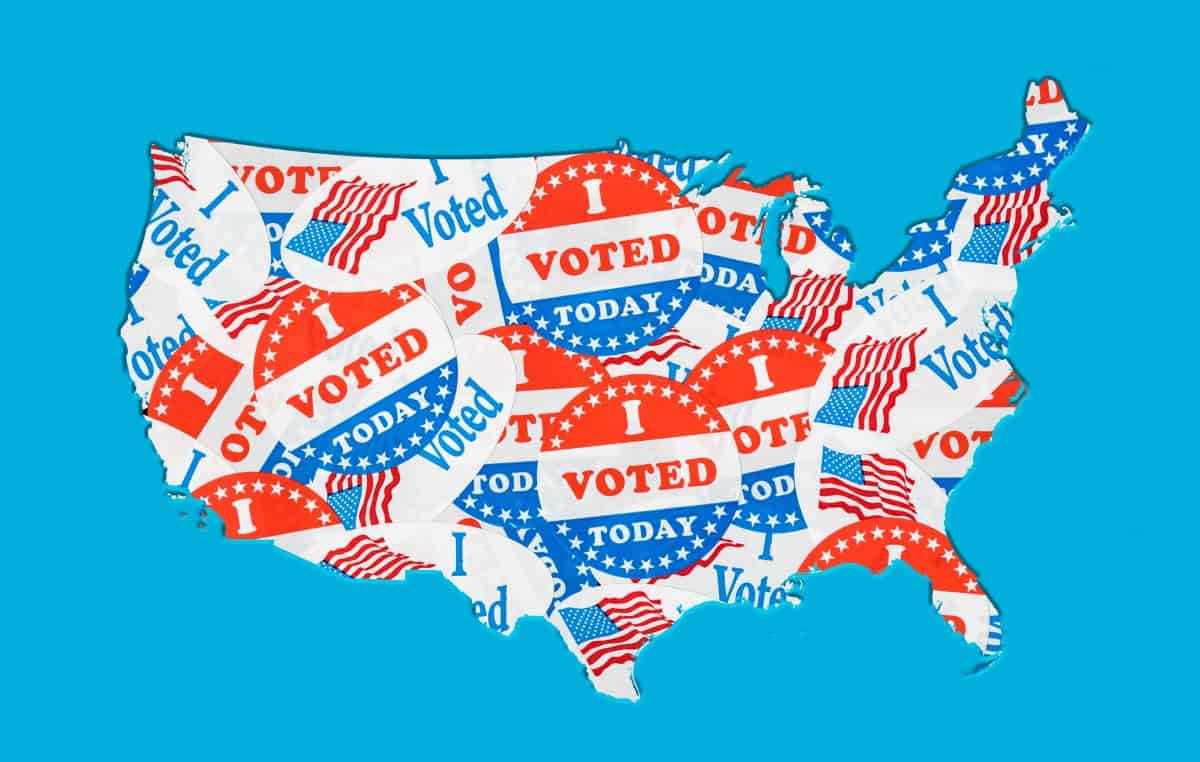
The economy ranks as the top concern among 22 issues that U.S. registered voters say will impact their presidential choice.
It stands out as the only issue where a majority, 52%, state that candidates’ positions are “extremely important” to their decision. An additional 38% of voters consider the economy “very important,” making it a key factor for about nine in ten voters.
When it comes to managing the economy, 54% of voters see Donald Trump as more capable compared to 45% who favor Kamala Harris as per Gallup.
Americans’ mounting concerns over inflation, financial stability, and the broader economy is causing them to feel worse off than four years ago. As pressures on household finances persist, political leaders and policymakers must address these issues to restore confidence. The sustained worries could play a significant role in shaping the outcome of the upcoming elections and future economic policies.
Like Financial Freedom Countdown content? Be sure to follow us!
Maximize Your Benefits: Essential Social Security Strategies for Singles
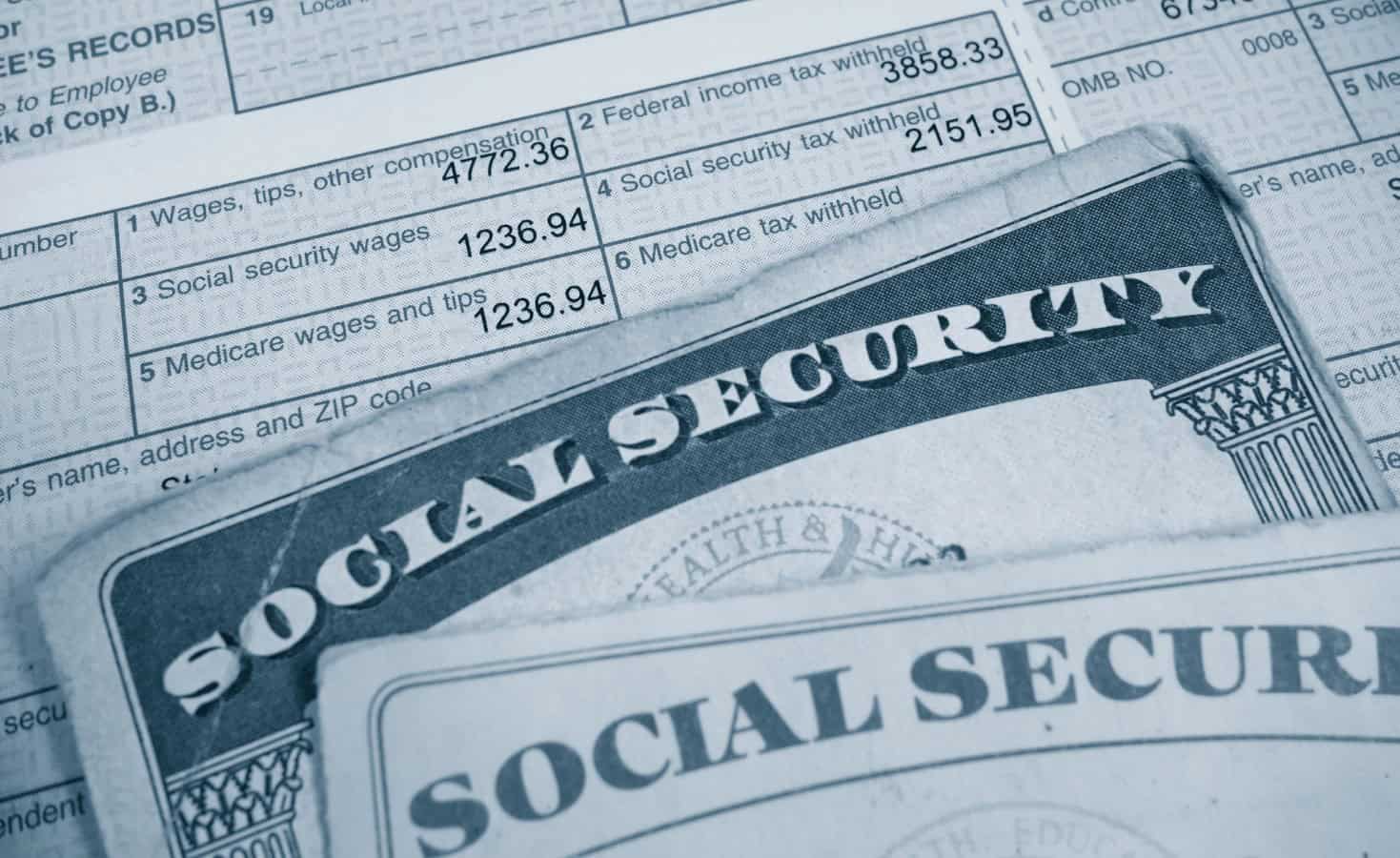
While singles may have fewer Social Security filing options than married couples, smart planning around when to claim benefits can pay off for anyone, including those flying solo.
Maximize Your Benefits: Essential Social Security Strategies for Singles
Planning to Retire? Check Out The Most Affordable States – Surprisingly, Florida Isn’t One of Them

As Americans approach retirement, their anxiety about the future intensifies. Economic challenges, rising healthcare costs, and high living expenses are creating a cloud of uncertainty over the choice of retirement destinations. A recent study, however, reveals the Mountain State region as a prime spot for those seeking affordable retirement options.
Planning to Retire? Check Out The Most Affordable States – Surprisingly, Florida Isn’t One of Them
Maximize Your Social Security Benefits with These 14 Smart Strategies
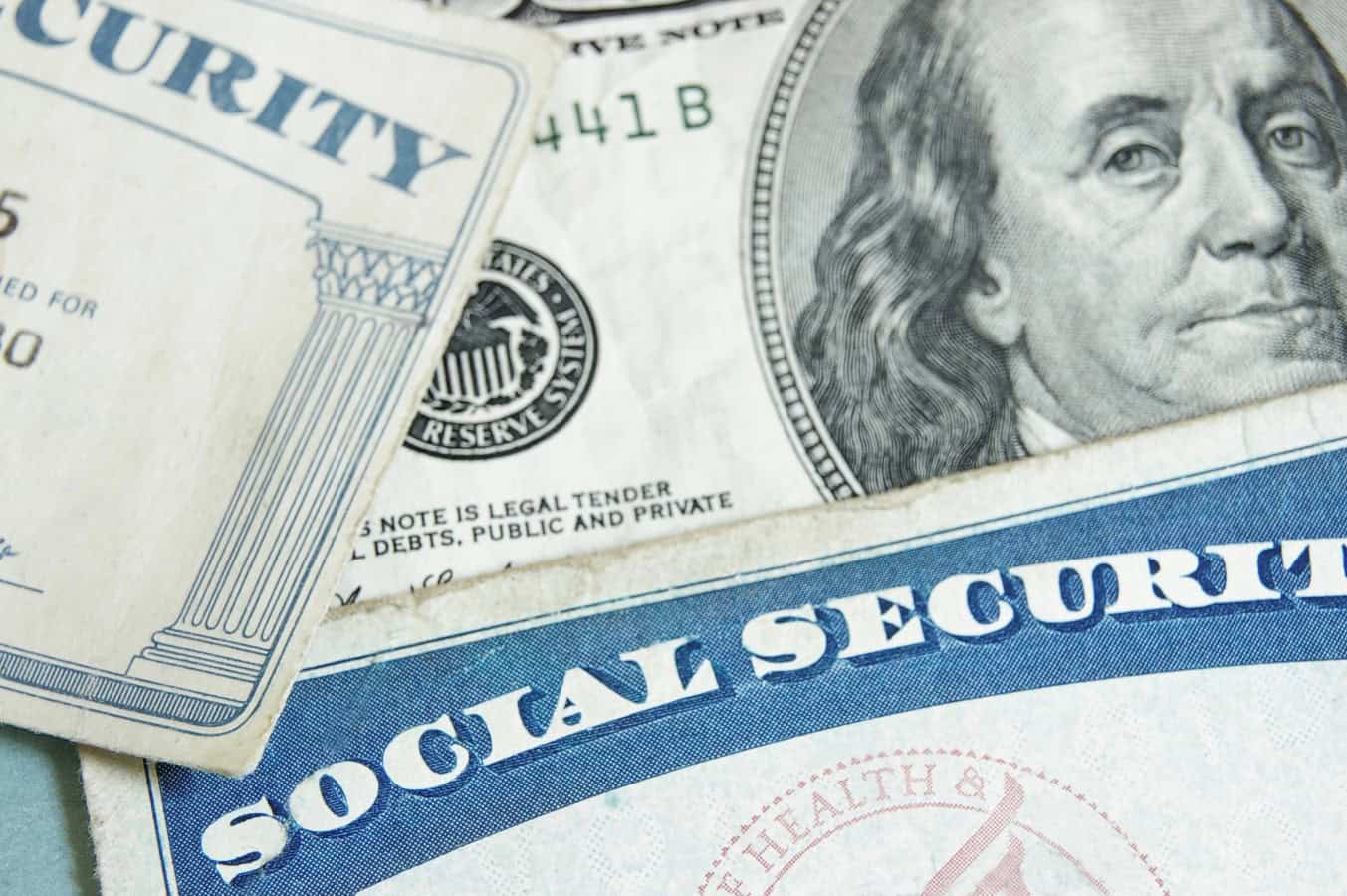
Social Security serves as a critical lifeline for countless seniors, providing essential income support in their retirement years. In the current economic environment, Social Security’s inflation-adjusted benefits offer a safeguard against the worst inflation seen in four decades. Rising interest rates have disrupted many retirement portfolios, causing bond fund values to plummet. Social Security can act as a ballast for a typical stock-bond retirement portfolio. By implementing specific strategies, retirees can maximize their Social Security benefits and secure a stable financial future.
Maximize Your Social Security Benefits with These 14 Smart Strategies
The 10 States Taxing Social Security in 2024 and the 2 That Just Stopped

While many bask in the belief that their golden years will be tax-friendly, residents in nine specific states are facing a reality check as their Social Security benefits come under the taxman’s purview. Conversely, a wave of relief is set to wash over two states, marking an end to their era of taxing these benefits. This shift paints a complex portrait of retirement planning across the U.S., underscoring the importance of staying informed of the ever changing tax laws. Are you residing in one of these states? It’s time to uncover the impact of these tax changes on your retirement strategy and possibly reconsider your locale choice for those serene post-work years. Here are the states taxing social security benefits.
The States Taxing Social Security in 2024 and the 2 That Just Stopped
Retire Abroad and Still Collect Social Security? Avoid These 9 Countries Where It’s Not Possible

Dreaming of retiring to a sun-drenched beach or a quaint village? Many Americans envision spending their golden years abroad, savoring the delights of new cultures and landscapes. However, an essential part of this dream hinges on the financial stability provided by Social Security benefits. Before packing your bags and bidding farewell, it’s crucial to know that not all countries play by the same rules when it comes to collecting these benefits overseas. Here are the nine countries where your dream of retiring abroad could hit a snag, as Social Security benefits don’t cross every border. Avoid living in these countries so your retirement plans don’t get lost in translation.
Retire Abroad and Still Collect Social Security? Avoid These 9 Countries Where It’s Not Possible

John Dealbreuin came from a third world country to the US with only $1,000 not knowing anyone; guided by an immigrant dream. In 12 years, he achieved his retirement number.
He started Financial Freedom Countdown to help everyone think differently about their financial challenges and live their best lives. John resides in the San Francisco Bay Area enjoying nature trails and weight training.
Here are his recommended tools
Personal Capital: This is a free tool John uses to track his net worth on a regular basis and as a retirement planner. It also alerts him wrt hidden fees and has a budget tracker included.
Platforms like Yieldstreet provide investment options in art, legal, real estate, structured notes, venture capital, etc. They also have fixed-income portfolios spread across multiple asset classes with a single investment with low minimums of $10,000.






